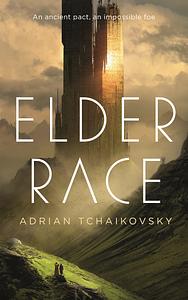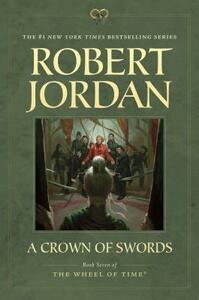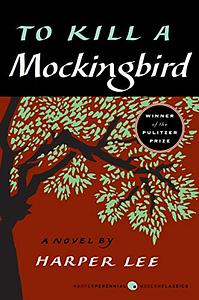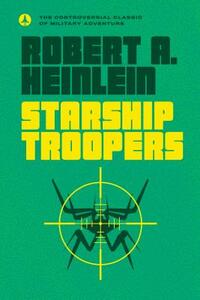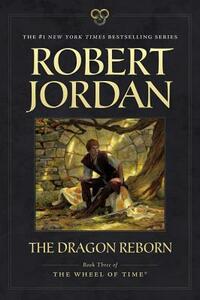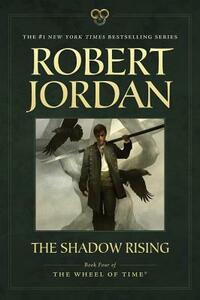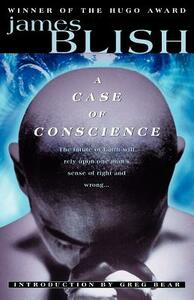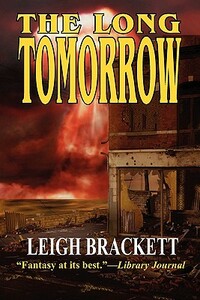You need to sign in or sign up before continuing.
Take a photo of a barcode or cover
geeklet's Reviews (338)
adventurous
dark
emotional
medium-paced
Plot or Character Driven:
Plot
Strong character development:
Yes
Loveable characters:
Yes
Diverse cast of characters:
No
Flaws of characters a main focus:
Yes
adventurous
dark
slow-paced
Plot or Character Driven:
Plot
Strong character development:
Yes
Loveable characters:
Yes
Diverse cast of characters:
Yes
Flaws of characters a main focus:
Yes
adventurous
dark
medium-paced
Plot or Character Driven:
Plot
Strong character development:
Yes
Loveable characters:
Yes
Diverse cast of characters:
No
Flaws of characters a main focus:
No
adventurous
dark
medium-paced
Plot or Character Driven:
A mix
Strong character development:
Complicated
Loveable characters:
Complicated
Diverse cast of characters:
No
Flaws of characters a main focus:
No
TL;DR: Like 4 1/2 stars? Something like that. I round up.
Book five of my Hugo & Nebula Best Novel challenge down! I feel like this is the first book of the challenge that gave me something to mull over in my head.
I'm going to forgo the little pro/con list that I've used in previous reviews for this challenge. This was a re-read for me. I read Starship Troopers for the first time about twenty years ago. I must have randomly decided it was a 3 star when I first entered it into Goodreads. I'm more willing to rate this book higher now, despite the fact that I still pretty much disagree with every bit of Heinlein's beliefs that he jams into this novel.
The significance of Starship Troopers is simply undeniable. Without this book, military science fiction would likely look very, very different. I can see echoes of this book throughout the entire subgenre of military SF. I guess I didn't realize how important Starship Troopers was when I originally read the novel.
I really enjoy the surface level story of this book. I've always considered myself a fan of military SF and I really enjoy watching Johnnie grow from a young civilian kid to a military man. The battle scenes are well done. They're easy to understand while maintaining a certain level of anxiety. While the characters are a little flat, they fit well enough into their world. Johnnie is a little too perfect but that's just sorta how Heinlein writes his men. He really believed that a man could do pretty much everything well, if they just tried hard enough. I understand why the book is so laser focused on Johnnie. We get a great study of war from the eyes of a grunt soldier on the ground. I found this frustrating at first. I wanted to know more about how the war with the Bugs was viewed on Earth. However, as I spent more time in Johnnie's head, I realized that the tight focus on Johnnie is what allows the book to be so effective.
I have to say that I simply do not agree with a lot of Heinlein's views that he jams into this novel. Heinlein dedicates every classroom scene as an opportunity to directly shout his views on morality, government, violence and value. It's more than just a way for the military to operate, he proposes this as an entire framework to live your life. Heinlein was a libertarian who really, really, really liked the military. When I was younger, I'm sure this is why the book rubbed me the wrong way. However, now that I'm a little older, I can appreciate that Heinlein was willing to examine a new way of building a society. It was brave of him to toss his ideas on the page. That's why I enjoy science fiction. I like to read about different ideas and ways to view a society. I may not always agree with the author but I enjoy looking at their thought experiment.
Book five of my Hugo & Nebula Best Novel challenge down! I feel like this is the first book of the challenge that gave me something to mull over in my head.
I'm going to forgo the little pro/con list that I've used in previous reviews for this challenge. This was a re-read for me. I read Starship Troopers for the first time about twenty years ago. I must have randomly decided it was a 3 star when I first entered it into Goodreads. I'm more willing to rate this book higher now, despite the fact that I still pretty much disagree with every bit of Heinlein's beliefs that he jams into this novel.
The significance of Starship Troopers is simply undeniable. Without this book, military science fiction would likely look very, very different. I can see echoes of this book throughout the entire subgenre of military SF. I guess I didn't realize how important Starship Troopers was when I originally read the novel.
I really enjoy the surface level story of this book. I've always considered myself a fan of military SF and I really enjoy watching Johnnie grow from a young civilian kid to a military man. The battle scenes are well done. They're easy to understand while maintaining a certain level of anxiety. While the characters are a little flat, they fit well enough into their world. Johnnie is a little too perfect but that's just sorta how Heinlein writes his men. He really believed that a man could do pretty much everything well, if they just tried hard enough. I understand why the book is so laser focused on Johnnie. We get a great study of war from the eyes of a grunt soldier on the ground. I found this frustrating at first. I wanted to know more about how the war with the Bugs was viewed on Earth. However, as I spent more time in Johnnie's head, I realized that the tight focus on Johnnie is what allows the book to be so effective.
I have to say that I simply do not agree with a lot of Heinlein's views that he jams into this novel. Heinlein dedicates every classroom scene as an opportunity to directly shout his views on morality, government, violence and value. It's more than just a way for the military to operate, he proposes this as an entire framework to live your life. Heinlein was a libertarian who really, really, really liked the military. When I was younger, I'm sure this is why the book rubbed me the wrong way. However, now that I'm a little older, I can appreciate that Heinlein was willing to examine a new way of building a society. It was brave of him to toss his ideas on the page. That's why I enjoy science fiction. I like to read about different ideas and ways to view a society. I may not always agree with the author but I enjoy looking at their thought experiment.
adventurous
challenging
dark
medium-paced
Plot or Character Driven:
A mix
Strong character development:
Yes
Loveable characters:
Yes
Diverse cast of characters:
Yes
Flaws of characters a main focus:
Yes
adventurous
challenging
dark
emotional
medium-paced
Plot or Character Driven:
A mix
Strong character development:
Yes
Loveable characters:
Yes
Diverse cast of characters:
Yes
Flaws of characters a main focus:
Yes
adventurous
dark
emotional
slow-paced
Plot or Character Driven:
A mix
Strong character development:
Yes
Loveable characters:
Yes
Diverse cast of characters:
Yes
Flaws of characters a main focus:
Yes
adventurous
challenging
medium-paced
Plot or Character Driven:
Character
Strong character development:
Complicated
Loveable characters:
No
Diverse cast of characters:
No
Flaws of characters a main focus:
Yes
TL; DR: A perfectly adequate 3 stars here
Book five of my Hugo & Nebula Best Novel challenge down!
Positives: The first part of this book is outstanding. It was originally a novella and the second part of the book was added later. Blish sets up the story with an extremely interesting premise. I really enjoy sci-fi explorations of religion as a general rule so I was excited after I finished the first part of the book. I also almost liked the characters in this book, at least our main character Father Ramon Ruiz-Sanchez. The characters felt more dynamic than characters I've encountered so far in this reading challenge. I'm also going to give some love to the world building in this book. I did feel a good sense of what the alien world was like, as well as what life was like on Earth.
Negatives: The second part of this book is a bit of a bumbling mess. I thought the questions asked in the first part of the book about the nature of sin to be far more compelling than the exploration of the alien son coming to Earth. The story felt rushed. There were scenes that I simply couldn't even understand why they were included in the book. The whole party scene? Considering the book is so small, I wish that more attention had been given to focusing directly on the themes and questions asked.
Overall, it was alright. I do think I expected to enjoy it more than I did. I'm really glad I have a reread of A Canticle for Leibowitz coming up though. This book did get me in the mood to read some more SF books that examine religion.
Book five of my Hugo & Nebula Best Novel challenge down!
Positives: The first part of this book is outstanding. It was originally a novella and the second part of the book was added later. Blish sets up the story with an extremely interesting premise. I really enjoy sci-fi explorations of religion as a general rule so I was excited after I finished the first part of the book. I also almost liked the characters in this book, at least our main character Father Ramon Ruiz-Sanchez. The characters felt more dynamic than characters I've encountered so far in this reading challenge. I'm also going to give some love to the world building in this book. I did feel a good sense of what the alien world was like, as well as what life was like on Earth.
Negatives: The second part of this book is a bit of a bumbling mess. I thought the questions asked in the first part of the book about the nature of sin to be far more compelling than the exploration of the alien son coming to Earth. The story felt rushed. There were scenes that I simply couldn't even understand why they were included in the book. The whole party scene? Considering the book is so small, I wish that more attention had been given to focusing directly on the themes and questions asked.
Overall, it was alright. I do think I expected to enjoy it more than I did. I'm really glad I have a reread of A Canticle for Leibowitz coming up though. This book did get me in the mood to read some more SF books that examine religion.
adventurous
fast-paced
Plot or Character Driven:
Plot
Strong character development:
No
Loveable characters:
No
Diverse cast of characters:
Complicated
Flaws of characters a main focus:
No
TL; DR: Solid 3 stars
Book four of my Hugo & Nebula Best Novel challenge down.
I'm going to skip an overview of the novel. The book isn't very long and it's about a group of time travelers who are in a temporal war. There are places where the soldiers can go relax and recuperate that are out of time. These Recuperation Stations are operated by part sex workers, part nurses, part psychologists, part party animals. It seems like a very specific skill set but hey, I don't know what you'd need for a temporal war. The book takes place entirely in one of these Recuperation Stations with a variety of characters from different times.
Positives: This is a neat thought experiment. Soldiers are taken out of their timeline and placed in a temporal war. The world that is spoken about seems very different from the one we know, meaning that the war has already caused pretty drastic changes. Leiber also plays with language in a fun way in this book. Sometimes a sentence would just pop at me. I also liked the setting. For all of the talk about a war, the book really just takes place in a room where characters are talking to each other. It felt like a play.
Negatives: The characters are dull. I know that's a common complaint with older sci-fi and honestly, I don't really even look at character behavior in science fiction most of the time. I just take it for what it is. However, in this book, the characters seem even worse than I expect. I didn't care for any of them except for Doc. I liked Doc because he stayed drunk the entire time which seemed like the best plan anyone had. You never really developed a strong sense of who any of the characters were.
I didn't hate it, didn't love it. I can't see myself revisiting this book later but I can see how it would inspire other time traveling stories.
Book four of my Hugo & Nebula Best Novel challenge down.
I'm going to skip an overview of the novel. The book isn't very long and it's about a group of time travelers who are in a temporal war. There are places where the soldiers can go relax and recuperate that are out of time. These Recuperation Stations are operated by part sex workers, part nurses, part psychologists, part party animals. It seems like a very specific skill set but hey, I don't know what you'd need for a temporal war. The book takes place entirely in one of these Recuperation Stations with a variety of characters from different times.
Positives: This is a neat thought experiment. Soldiers are taken out of their timeline and placed in a temporal war. The world that is spoken about seems very different from the one we know, meaning that the war has already caused pretty drastic changes. Leiber also plays with language in a fun way in this book. Sometimes a sentence would just pop at me. I also liked the setting. For all of the talk about a war, the book really just takes place in a room where characters are talking to each other. It felt like a play.
Negatives: The characters are dull. I know that's a common complaint with older sci-fi and honestly, I don't really even look at character behavior in science fiction most of the time. I just take it for what it is. However, in this book, the characters seem even worse than I expect. I didn't care for any of them except for Doc. I liked Doc because he stayed drunk the entire time which seemed like the best plan anyone had. You never really developed a strong sense of who any of the characters were.
I didn't hate it, didn't love it. I can't see myself revisiting this book later but I can see how it would inspire other time traveling stories.
adventurous
reflective
slow-paced
Plot or Character Driven:
A mix
Strong character development:
Complicated
Loveable characters:
Yes
Diverse cast of characters:
Complicated
TL;DR: I dunno really. I liked it a little more than four stars but not quite enough to slap five stars up there.
After a brutal nuclear war, America is knocked back. Cities over a certain size are forbidden and people have clung to religion as a way to rebuild societies. Young Len Colter and his older cousin Esau live in a small village. After a fairly traumatic event, the two boys begin to cling to an idea of a city called Bartorstown, where technology and education are allowed. This obsession causes the boys to leave their small village and begin their journey.
Wow-o-wow. I really thought I knew my stuff when it came to 50's/60's post-apocalyptic novels. It's my very specific jam. However, I had never even heard of this novel until three or four months ago. Is this the first American post-apocalyptic novel? The story takes place about two generations after the nuclear war that devastated the world. Education is sparse and people generally fear rebuilding the cities, since they were the targets of destruction.
The book is broken down into three parts. The first part mostly takes place in the small village where Len and Esau grow up. All in all, their lives don't seem horrible. The village isn't portrayed as a bad place. However, the village feels very stifling. The boys thirst for knowledge that they simply are not allowed to have. I really enjoyed the characterization of Len's father and his Grandmother. His Grandmother is one of the few people who can remember the world before the disaster.
I don't want to speak too much about the second and third parts of the novel. The book turns into a bit of a road movie, taking the boys from place to place. Brackett manages to provide enough detail in her world to catch your attention. I also really enjoyed her prose. I did have some problems with the end of the novel. I felt that the ending was a little abrupt and I struggled a bit with that. I also find myself wondering what Brackett was trying to say. I didn't really feel like she had a message that she wanted to get across. The book instead feels more like an examination of desire, memories, and religion in our lives. No matter what Len has or where he is, Len always wants more. He never is able to just be content.
I really love this very specific subgenre. I am glad I stumbled across this novel and I'll be very happy to visit it again. Maybe in a couple of years I should do a challenge where I read every post-apocalyptic novel I can find from this era.
After a brutal nuclear war, America is knocked back. Cities over a certain size are forbidden and people have clung to religion as a way to rebuild societies. Young Len Colter and his older cousin Esau live in a small village. After a fairly traumatic event, the two boys begin to cling to an idea of a city called Bartorstown, where technology and education are allowed. This obsession causes the boys to leave their small village and begin their journey.
Wow-o-wow. I really thought I knew my stuff when it came to 50's/60's post-apocalyptic novels. It's my very specific jam. However, I had never even heard of this novel until three or four months ago. Is this the first American post-apocalyptic novel? The story takes place about two generations after the nuclear war that devastated the world. Education is sparse and people generally fear rebuilding the cities, since they were the targets of destruction.
The book is broken down into three parts. The first part mostly takes place in the small village where Len and Esau grow up. All in all, their lives don't seem horrible. The village isn't portrayed as a bad place. However, the village feels very stifling. The boys thirst for knowledge that they simply are not allowed to have. I really enjoyed the characterization of Len's father and his Grandmother. His Grandmother is one of the few people who can remember the world before the disaster.
I don't want to speak too much about the second and third parts of the novel. The book turns into a bit of a road movie, taking the boys from place to place. Brackett manages to provide enough detail in her world to catch your attention. I also really enjoyed her prose. I did have some problems with the end of the novel. I felt that the ending was a little abrupt and I struggled a bit with that. I also find myself wondering what Brackett was trying to say. I didn't really feel like she had a message that she wanted to get across. The book instead feels more like an examination of desire, memories, and religion in our lives. No matter what Len has or where he is, Len always wants more. He never is able to just be content.
I really love this very specific subgenre. I am glad I stumbled across this novel and I'll be very happy to visit it again. Maybe in a couple of years I should do a challenge where I read every post-apocalyptic novel I can find from this era.
